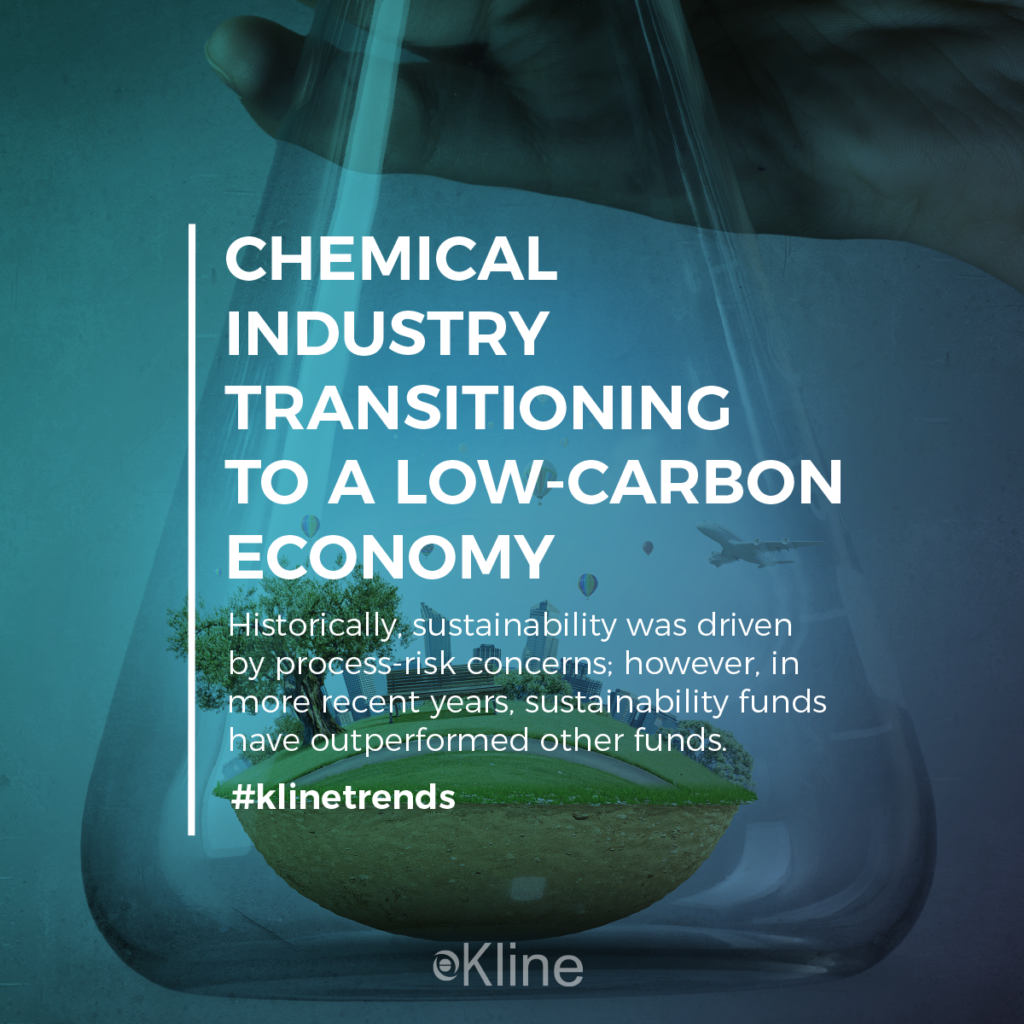[TREND 18] Chemical Industry Transitioning to a Low-Carbon Economy

The chemicals industry is shifting toward more carbon-neutral operations implementing circular economy initiatives for more energy-efficient processes while looking into better ways of reducing CO2 emissions. This is further supported by the European Commission who released a chemicals strategy for sustainability in October 2020 as part of the European Green Deal.
“The main goal is to specialize in a portfolio of chemicals that are low-energy in their production, that do not create health or environmental risks, and that can themselves be safely reused and recycled.” The European Plastics Strategy targets the entire lifecycle of plastics and not just the waste management phase. This is expected to drive circular solutions which spread the costs across the product life cycle and supply chain. Businesses including BASF, Clariant, Repsol and others have been investing in sustainability innovation, working to identify ways to produce high-performance materials from recycled waste. Plastics chemicals reprocessing technologies are being developed and promoted as contributing toward recycling chemicals; this includes pyrolysis technologies to convert plastic waste. Developments toward increasing material composability are also taking place. Firms like Polymateria have achieved the biodegradable benchmark set by British standards of plastics breaking down into harmless wax which contain no microplastics or nanoplastics.
Moreover, there is a push towards developing renewable energy sources, carbon-neutral initiatives, and an integrated life cycle that would develop and implement digitalization strategies to enable carbon reduction and accountability and the chemicals industry has been at the forefront of innovation, developing chemicals and materials to enable breakthrough technologies.
Historically, sustainability was driven by process-risk concerns; however, in more recent years, sustainability funds have outperformed other funds. Several institutions are developing standards to help investors measure ESGs. These institutes include the Sustainable Accounting Standards Board (SASB) and the Global Reporting Initiative (GRI).
Another push comes from young future leaders who are demanding to work with sustainably driven firms. Employers need to address this demand by promoting sustainable achievements and continuously improving their sustainability initiatives.
Consumer trends have a significant impact on the drive for sustainability. Consumers are better-informed, and the younger generation is demanding more openness and accountability. The implementation of blockchain across the consumer product value chains will hold product developers accountable for sourcing sustainable raw materials. This will require the investment community to redevelop its strategies.
The COVID-19 crisis has led to reduced manufacturing utilization, plant shutdowns, and calls for reduced pollution and cleaner air. As the world eventually rebounds from the pandemic, economies will pick up and drive production, arguably at a higher recovery rate than witnessed after the financial crisis of 2008.
#klinetrends #kline2020countdown #chemicalindustry #chemical #sustainability #innovation
Follow our 2020 COUNTDOWN CALENDAR for the 30 biggest trends HERE
Categories
Recent Posts
- How are Companies Using Innovation to Meet LATAM’s Industrial Lubricant Needs?
- Why is India a Hotspot for Professional Beauty Brands?
- 3 Ways to Better Target Salons and Independent Stylists
- How are the EU’s New Sustainability Regulations Reshaping the Personal Care Industry?
- Market Availability of Glyphosate Extended to 2027 in Mexico Due to Lack of Viable Alternatives and Concerns Over Food Production and Security

